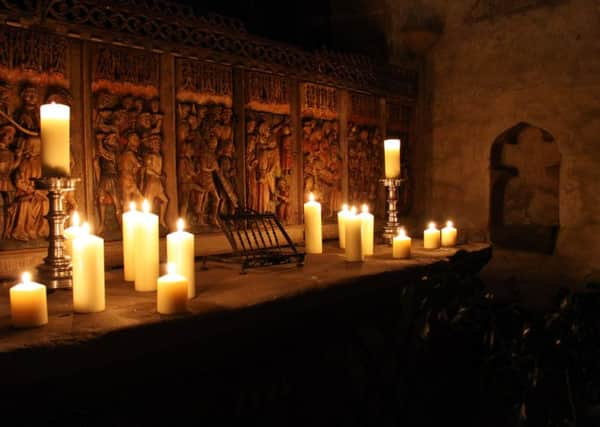Joseph D. Cortis: The darkest hour sees a birth of light


Now there is a question that perhaps has passed over your lips or has reached the ears of most clergy overtime. At first, the answer seems obvious: “Why, at midnight, of course!”
However, in many worshiping communities, the Midnight Mass is anticipated by a few hours and the Vigil of the celebration of the birth of the Son of God is celebrated at various times.
Advertisement
Hide AdAdvertisement
Hide AdNevertheless, I believe the question is still one which deserves a bit of reflection.
Midnight, the middle of the night, signifies the darkest time of our 24-hour period. It is a luminal moment between two distinct dates: December 24 ends at the point where December 25 begins.
Our Advent season completes itself where the celebration of Christmas commences and greeted with the prophetic announcement: “The people who walked in darkness have seen a great light!” (Isaiah 9:1)
There is something about the mysteriousness of midnight that has fascinated and terrified me. A line in a prayer entitled, A Christmas Novena, has always caught my attention and captured my imagination. It describes when the Son of God “was born of the most pure Virgin Mary, at midnight, in Bethlehem, in piercing cold”.
Advertisement
Hide AdAdvertisement
Hide AdWhat a way for The Son of God to enter into history! Midnight was the scary time, certainly not the time for a baby to be born and if that was not frightening enough, the fear factor increases with two more descriptive parts of his birth. It happened in an occupied land and in the freezing cold.
This is the moment we celebrate the eternal God being born into human history. A time full of darkness (midnight), insecurity (Bethlehem) and discomfort (piercing cold). The opposite, however, is a time which cries out for light, security and comfort, gained through truth, justice and peace – a time longing for Salvation.
And so, anytime that for us is the darkest hour, that is the exact time which we can commemorate God’s entrance into the darkest hour of the day. However difficult it may be for us to see beyond the darkness, it is there where we need most to remember God’s birth into our lives.
A midnight Mass celebrates the eternal light breaking the darkness. It is a liturgy, praising and giving thanks to God for the salvific presence of Jesus Christ into our history.
Advertisement
Hide AdAdvertisement
Hide AdOur darkest moments, that is, our midnights do not necessarily come at the end of a 24 hour day, therefore, we do not have to wait until the literal midnight hour to celebrate our Midnight Mass.
Our Midnight Mass is when we can celebrate with courage the fact that Justice diminishes the darkness in our lives. We can be comforted by the peace which the presence of God brings to our most painful periods. We can be secure by the gift of truth in those most unsure moments of our journey. We remember Emmanuel – God is with us!
St Augustine, in one of his Christmas sermons, encouraged his congregation to respond to Christ’s breaking into the darkness of the world through action. He states: “So then, because Christ is truth and peace and justice, conceive him in faith, give birth to him in works, so that what Mary’s womb did for the flesh of Christ, your hearts may do for Christ’s law.” (Sermon 192, 2).
That also can be our response in our remembrance of Midnight Mass. As we celebrate Christ’s birth into our darkness, we continue to give birth to Christ, as his body, in the way we respond with truth, justice and peace in our lives and in the world around us.
Advertisement
Hide AdAdvertisement
Hide AdMidnight Mass, is it just a passive moment? Or is it something which we continue to actively celebrate in our lives? To repeat my question: “What time is your Midnight Mass?”
Perhaps it is this service in the first hours of December 25 – or perhaps we can recognise that we celebrate it whenever our faith allows us to discover the salvific presence of God in our darkest times.
With every best wishes for a peaceful and holy Christmas season.
The Revered Dr Joseph D. Cortis preaches at St Anne’s Cathedral, Leeds, and is Private Secretary to the Bishop of Leeds.